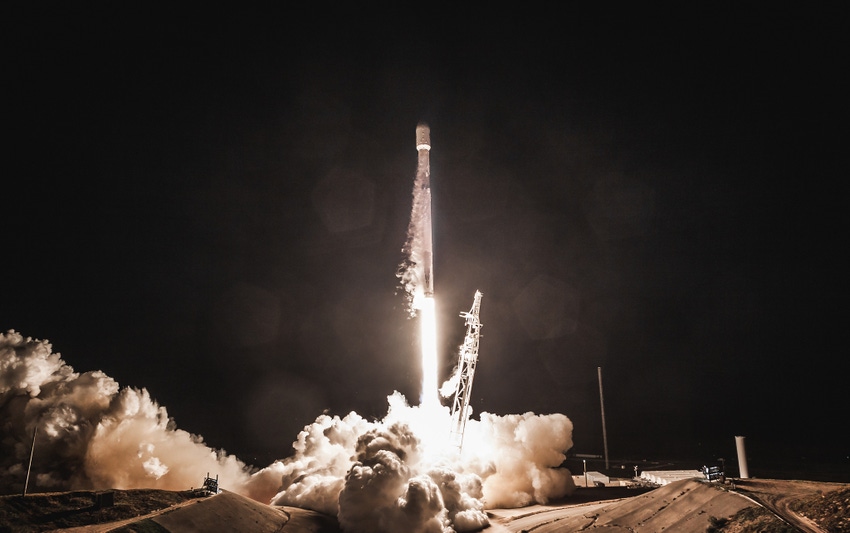It might have been a couple of days overdue, but Elon Musk’s SpaceX has finally launched its first satellite with the promise of delivering high-speed, reliable internet.
February 23, 2018

It might have been a couple of days overdue, but Elon Musk’s SpaceX has finally launched its first satellite with the promise of delivering high-speed, reliable internet.
The launch itself is one of the first steps taken in an ambitious project known as Starlink which will aim to nearly 12,000 satellites to orbit by the mid-2020s to create a space-based Internet communication system. While the idea of satellite delivery for internet is not new, Musk’s plan is to use smaller satellites which operate in a low earth orbit, which in theory should remove any lag in delivery, is a new approach. This lag has been the criticism of such ambitions in years gone.
The launch officially took place at 6.17am on February 21, after a three day delay. The PAZ satellite will orbit Earth 15 times per day, covering an area of over 300,000km2 from an altitude of 514km and a velocity of seven km per second. While this might not seem like a huge amount of coverage, once Musk has launched a couple thousand of these assets into orbit, it becomes a much more feasible idea.
Now down to the techie stuff. The satellites will employ optical inter-satellite links and advanced phased array beam forming and digital processing technologies in the Ku- and Ka-band according to documents filed with the FCC. Many of the details on how the satellites will actually work are being kept under wraps right now, though we do know the assets will use frequencies above 10,000 GHz. These satellites will be linked to flat user terminals, as opposed to directly to handsets, which can be placed anywhere assuming they can see the sky. In terms of set up, it does sound simple which could appeal to developing markets.
It does seem like a very good idea, perhaps one of the reasons it has not been overly considered to date is because of the expense. The theory is there, but the practicalities of running a space-based Internet communication system are relatively unknown – experience for the vast majority has been limited to earth to date. It is an expensive experiment, but Musk has made his name through expensive experiments; blue-sky thinking is generally limited to those with large bank accounts after all.
The effect on the wider communications industry is likely to be felt in the rural communities, under-developed market and notorious not-spots though. Musk is unlikely to have any profound impact on the way the majority of Western markets consume the internet, as while this is a nice idea, speeds and reliability from the satellites will not be able to compete with fibre.
About the Author(s)
You May Also Like








.png?width=300&auto=webp&quality=80&disable=upscale)


_1.jpg?width=300&auto=webp&quality=80&disable=upscale)


.png?width=800&auto=webp&quality=80&disable=upscale)